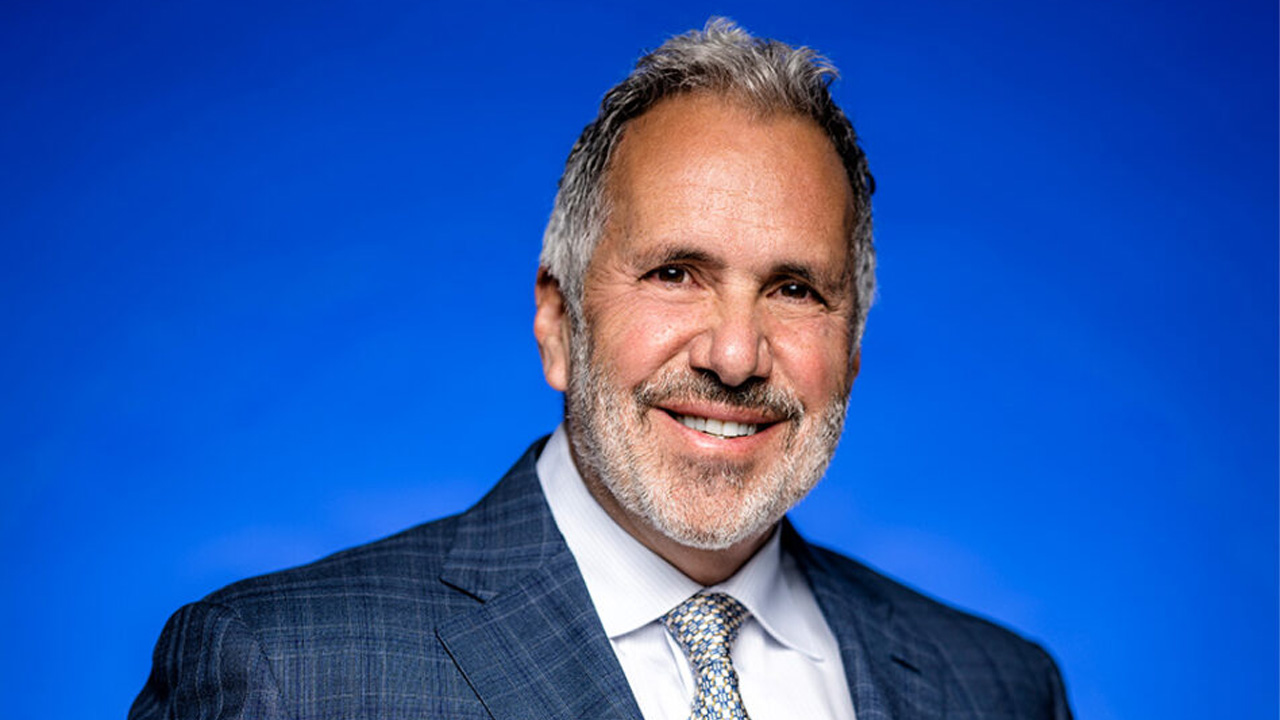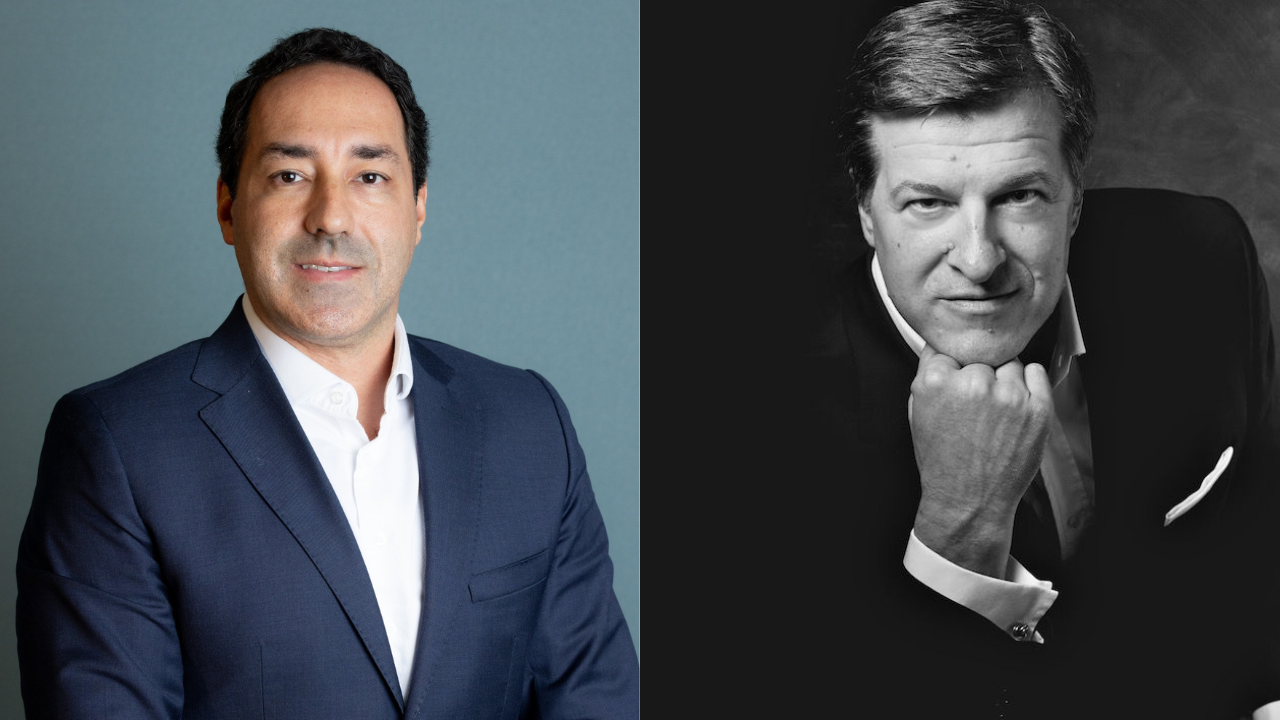StevenDouglas founder Steve Sadaka recalls that after previous downturns, he eventually regretted not having investing in distressed stocks and other deflated assets. So, when COVID-19 emerged, he didn’t panic. He invested: in people. The result was phenomenal growth.
There’s a lesson in that for every industry. As he told SFBW, taking in talent and treating them right yields measurable dividends.
Let’s start by talking about the dynamic, even convulsive, job market.
Absolutely. We have the imbalance of so many openings and few candidates. I think that will be dealt with as the economy starts slowing down because of the Federal Reserve’s rate hikes. We place a lot in the financial, technology and HR fields. Now, that’s not all we do, but there’s such an imbalance—more openings still than candidates are available—so candidates have been really cocky and demanding higher salaries because of supply and demand. A candidate in accounting could have five different offers, so that’s been responsible for salary inflation.
In the state of Florida, there are two jobs for every person, but let’s focus on the white-collar executives that you deal with.
I think it’s still a ratio of 1 to 2, and there’s still a high demand for accounting professionals, IT professionals, HR professionals. And there’s a trillion dollars of dry powder on the sidelines with private equity firms. They’re still buying companies right now and when they buy the companies, they want to upgrade the CEO, the CFO, the head of HR, the head of marketing, and so there’s still there’s a big demand. On the executive side, it hasn’t slowed down yet. You hear about big tech laying off thousands of employees, but you know those are the Facebooks of the world, the Googles of the world, the Microsofts, but you know Florida is a predominantly middle-market environment—companies with probably $50 million to a billion dollars in sales, and that is still a healthy, robust market right now in Florida.
StevenDouglas is represented all over the country, as well as Latin America and Canada, right?
We have 25 locations, 165 employees and 475 consultants that we have out on projects. Our headquarters is based in Fort Lauderdale, but we have a really big presence in Orlando, Tampa and Jacksonville.
So, through the Fort Lauderdale office, are you placing folks in Palm Beach County and Miami-Dade County?
Yes, but that’s just a small part of my overall revenue. New York is my second biggest office—we have 25 professionals there. We’re a national firm based in Fort Lauderdale.
Do you reach out to professionals in New York to place them down here because there’s been such an influx?
I’m a Bronx boy—I moved down here when I was 13. We’re still seeing a big influx of people from New York, California, Chicago wanting to come to Florida mostly for the standard of living and the low tax rate.
You said you think StevenDouglas has cracked the code. What do you mean by that?
I really feel our firm has been cracking the code on both culture and collaboration. I’ll start from the beginning. My dream was always to be a partner, back then in one of the big eight accounting firms. I went to University of Florida, graduated with top honors in accounting, passed the CPA exam on the first shot and I went to work for one of the largest international accounting firms in the world. I’m 22 years old; I get there and the partners didn’t talk to the managers, the managers didn’t talk to the seniors, the seniors didn’t talk to the staff. I was in a room with a senior [executive] for two weeks and he never talked to me—this is 1979—and I came back to my dad and I said, “I don’t like work, it’s horrible. No one talks to you. You have to act pretentious at work all the time.”
My dad was old school, and he tells me, “That’s why they call it work—you’re not supposed to enjoy your work.” I quit after four months. Now remember, back then you had to work a year to get your CPA plus pass the CPA exam. Then I went to work for Laventhol & Horvath—I thought, all right, I’ll work for a smaller national firm. I went to work for them in Coral Gables—I quit after four months of that. Then I said to myself, let’s go with a regional firm out of New York, and they fired me after five months. So, now I’m 23 years old and I’ve had three accounting jobs in 13 months and pretty much ruined my accounting background. You like how I ruined my accounting career at 23?
You knew what you wanted—and didn’t want.
So, I went to a recruiter, looking for a job, and I said, “I’d like to use my accounting background to deal with people more,” and he ended up offering me a job out, of the blue, to place accountants. I had no sales training—he handed me a Yellow Pages and said, “Go find clients,” and it just felt great. It was more commission-driven and I loved it. I worked for the firm for two years.
Let’s jump forward to founding StevenDouglas.
I started StevenDouglas in 1984 on Brickell Avenue and my commitment was that my people and I would look forward to going to work in the morning so we could be ourselves and that we would make kind of money that we wanted to make.
Was there a Douglas, or is Douglas your middle name?
Middle name. My mother used to say “Steven Douglas” when she was mad at me.
Have you ever had any regrets about not going into your originally chosen field?
Now, you know, it’s so funny—my grandfather worked for the post office for 40 years and he said, “Why are you starting the firm? You don’t get health insurance.” My family was pretty risk-averse, and they were worried about me because I had no business experience. But I just knew I was in the right field—I loved what I did, and I was going to go for it. It also helped that I had no kids, I wasn’t married yet, and my car payment was $170 a month and my rent payment was $230 a month.
You’ve mentioned the disappointing collaboration in your first couple of accounting jobs. At some point, did you think about a different way?
My job and the job of the leaders in my firm is to take pressure off my staff. I feel like the job of leaders should be to inspire people and coach them as opposed to control them and instill fear, which is what a lot of my competitors do. They manage their phone calls—how many phone calls did you make today?—they have to fill out reports, people are afraid of getting fired, people are afraid to say the wrong thing. One of the reasons I left my firm—and it was a good firm—to start my own firm is that at my old firm, I had to go find my own clients and my own candidates; they provided no marketing support, and they took over half of my commission. That just didn’t seem right. They basically just provided a phone for me.
How did those experiences affect how you run your company?
When I started StevenDouglas, I wanted to make sure that my staff would actually get business and clients just from being a part of the firm. When I started StevenDouglas I placed CFOs and heads of HR. As you know, if you place the head of HR they could hire in all other areas of the company, and if you place the CFO and they need a controller they would come to me, and I could refer [the lead] to my staff. I was trying to add value for [my staff] from day one, from a business standpoint. We create a culture where people can be themselves, but we manage them as adults and professionals.
How else do you nurture and retain staff?
I’ll give you an example with COVID and how it ties into this whole collaboration thing. So, COVID comes in in 2020 and we’re down 80%. Companies didn’t even know what was going on; they couldn’t interview people. This is before Zoom got caught up. I felt my job as a leader was to keep everything stable, so I went to all my staff in March—this is when everyone was freaking out. I said no one’s going to get fired, no one’s going to get furloughed, your jobs are safe. My job, as the owner of the firm, was to keep everything stable in times of crisis, and I figured I was going to have to put in a couple million dollars of my own money to keep everything stable.
And what did your competitors do?
I knew my competitors were going to be very short-sighted. All my competitors that were publicly traded or owned by private equity firms cut people’s salaries, didn’t communicate, they furloughed people, they fired people, and they closed offices. During COVID, my CEO would send out an e-mail every night to people, keeping their confidence up. We communicated every day with our employees during COVID for the first couple of months.
How did you keep such a cool head?
I’ve been through four major recessions. In 1991, all the banks got taken over and I was on Brickell Avenue, and all my clients were banks and they got taken over, so ’91 was a tough recession. In 2001, 70% of IT search firms went out of business, 2009 was bad and then we had COVID. I always regretted not taking advantage of the downturn in ’09 by buying real estate or buying stocks when everybody was so fearful. I told my staff we’re going to come out of this and there’s going to be talent. Let’s go try to attract some great talent from other firms that are treating them lousy during COVID, so we’ve hired 75 people since COVID from other firms.
So instead of snapping up stocks and properties, you invested in people.
We were at 90 people, pre-COVID, and now we’re at 165. That’s pretty cool, huh? And then we did something else: We changed our referral policy because we really wanted everybody looking out for everybody else. We told people, if you introduce another division to a client, you’ll get a referral for a whole year on anybody they place at that client. That’s actually unheard of with my competitors and we’ve kept it since then.
Tell us one last thing that differentiates StevenDouglas from your competitors.
Remember I told you that at all other firms, you have to find your own clients and find your own candidates? At StevenDouglas, they get 40% of their clients either from the leadership team referring them a client, our website or other divisions. They actually get clients from being part of the firm. So, if I keep it an environment that’s supportive and encouraging and people who are growing and developing—plus, they’re making the kind of money they want to make—our average tenure at our firm is over 10 years, [excluding] people we’ve just recently hired. The [industry] average is 3½ years.
And other than long tenures, how do you know your philosophy and practices work?
Because of all the great people we hired, we did $55 million in 2000; we’re going to do close to $130 million in 2022.
Photos by Nick Garcia














